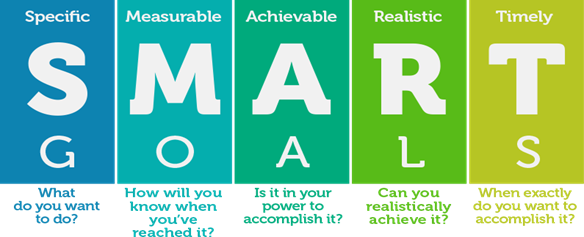Achieve happiness, productivity, and work-life balance with the right New Year’s resolutions
It might feel a little hard to come up with a resolution this year given all the uncertainties, and some of you might just want to take it “day by day”. But the new year brings new hope, and resolutions help us with our direction on how we want to improve this coming New Year.
Ultimately, everyone’s goal is to become healthier, happier and productive in both professional and personal lives. Below are some resolutions that can take you there:
- Do something you love everyday.
In their book “First, Break All The Rules: What the World’s Greatest Managers Do Differently,” authors Marcus Buckingham and Curt Coffman of the Gallup organization interviewed 80,000 managers and discovered that those who answered “Yes” to the question “Do I have the opportunity to do what I do best every day?” were more likely to be happy and productive at work. So find out what fuels your passion, whether it’s related to work or a personal endeavor, and make time for it everyday.
- Have daily me-time.
When you are a manager or entrepreneur, you will most likely spend every minute of your workday doing something for others. Then when you shift to home mode, there are the family needs to contend with.
So resolve to set time aside for yourself everyday to do something that is different from what you’re already doing all day long. Exercise, journal, meditate, nap, play with your pet, water your plants, or do any other activity that relaxes you.
- Give yourself a pat on the back when you deserve it.
The Gallup study also found out that people who received praise or recognition for their work in the last week were more happy and productive.
Obviously, you cannot (and should not) rely on your boss or colleagues to heap praises at you. Instead, make it a point to recognize yourself for your stellar efforts. One way to do this is to keep a “Sunshine Folder” — literally a folder in your computer (or an envelope for hard copies) that contains positive feedback, thank you letters, and other reminders of your accomplishments.
- Learn something new every day.
Is your daily routine starting to get, well, too routine? The good news is you don’t have to take up an extreme sport to venture out of your comfort zone. By simply paying more attention to your intellectual wellness, you can make room for growth, improvement, and learning which can be useful at work. Use reading challenges to build a reading habit, or subscribe to Google Alerts to receive articles on topics that interest you everyday. If reading is not really your thing, engage in healthy debates with a friend, learn a musical instrument or foreign language, or watch more documentaries on tv.
- Renew professional contacts and network
Look up old colleagues, engage in small talk with co-employees from other departments, and attend webinars that relate to your profession. You’ll benefit from these in the long run.
- Practice professional courage.
What do you usually do when an issue occurs at work? If you’re the type who shies away from addressing the problem, make 2021 your year to take charge. Speak your mind — just don’t do it rudely or argumentatively; be polite, concise, and impersonal. When you stand up for yourself, colleagues will admire you and you will prevent relapses from occurring.
- Learn to listen more, talk less.
If a team member confides a problem to you, resist the urge to step in and fix it unless they expressly ask for advice. More often than not, they just want a sounding board, not necessarily a problem-solver. By listening empathetically you allow their emotions to become “unstuck” and can even empower them to solve their problems on their own.
- Track everything
Planner apps are great for keeping an eye on your work tasks, so how about keeping track of your personal goals too? Invest in personal exercise trackers so you can keep track of steps, calories consumed, weight, sleep, and exercise. They can boost your confidence when you see your progress, and free up your mind from the tiny details that can be very taxing at the end of the day.
- Take up a new hobby or activity
Resolve to let 2021 be the year you take the first steps in participating in an activity or interest that you’ve always been interested in, whether it’s photography, redecorating a room, or a new sport. You’ll add a new dimension to your world, and this can positively interact with your business success.
- Laugh more
As a manager, it’s easy to get bogged down in serious matters like deliberation, advising, and problem-solving as you strive for business success. But take time to smile, laugh, and joke more — yes even during work hours (just make sure the jokes are appropriate). You don’t have to become best friends with your team, but there’s also no need to constantly be their parent either.
While seemingly simple, it may be hard to get these recommended resolutions done all at once. So, pick a couple that resonates with you, you’re likely to stick with, and tackle those first! And if you falter, don’t give up; restructure it so it’s more doable and try again the next day. After all, each day is another opportunity to be a better YOU.
— Written by Jaclyn Lutanco-Chua of MindNation




